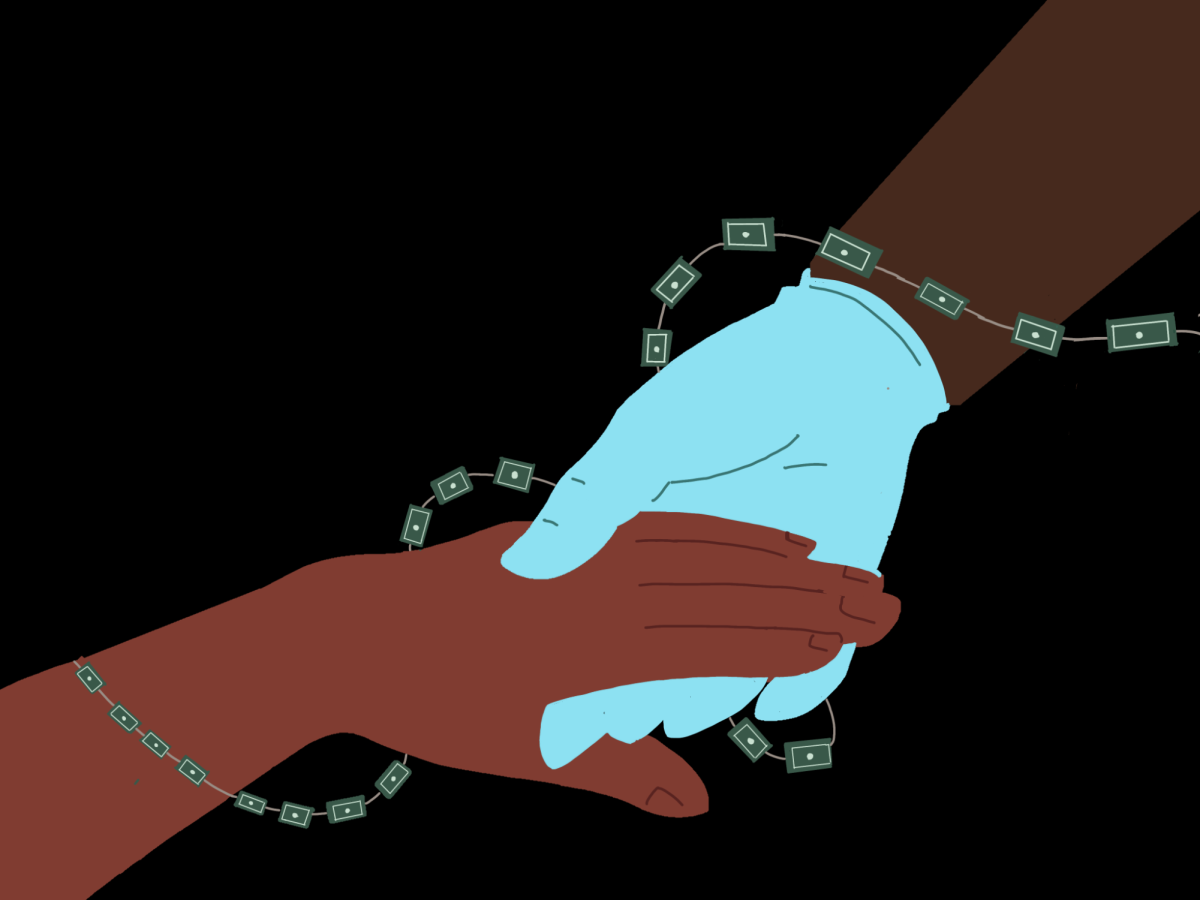As basketball season gets into full swing, hopefully you have the opportunity to check out a game whether it may be youth league, high school, college, or professional. If you have already seen a game, you probably have heard the officials being criticized throughout the game. Whether it be from coaches, players, fans, parents, or the student sections, officials hear it from everyone. What no one ever considers is the officials’ point of view.
To start, whether you are a player or coach in a game, everyone makes mistakes. Players and coaches are human and aren’t perfect. No matter the mistake, players and coaches are taught to move on and stay in the moment of the game. So why do we expect someone to be perfect just because they are a referee?
Just like playing or coaching a game, officiating a game is not an easy job.
“Basketball is especially difficult because so much is going on all at once and as a ref you are watching multiple things at once,” WPIAL basketball official Mr. Eric Schott said. “For example, in a simple pick and roll there are a bunch of things you are looking for and that’s only a couple of seconds and then there’s something else. The game just keeps moving so there’s really no time to relax or reset, there’s always another play coming that you have to be ready for.”
On top of the difficulty of actually making the calls, officials have to deal with the scrutiny from fans. With the uprising of social media, these environments are becoming even more hostile.
“The reason why a lot of people don’t want to ref right now is because they see referees getting attacked at high school games, especially on the internet. People on the internet can be much more vicious on their phone than they can be face-to-face because they don’t have to pay the price of knowing how much they hurt someone,” former NFL and NCAA basketball official Mr. Gene Steratore said. “So now, when they go to public games, they feel like they can call those refs things that they wouldn’t even think of saying before.”
With so many people telling you how bad you are at your job, even though they may not know what they are talking about, officials need to have internal confidence in their calls.
“You have to be confident on the floor or you’ll be second guessing yourself all the time. You can’t be second guessing yourself and thinking about plays that already happened. You have to move on and focus on the action happening right now. Confidence doesn’t mean that you are always right, it just means that you believe you made the right call,” Schott said.
With this confidence, officials need to have a sense of empathy for the players, coaches, and fans of the game.
“It’s diffusing a highly emotional situation. To bring it down to where you can navigate it. And the art of doing that, truly for me became more of what I was addicted to in officiating than actually getting the plays right,” Steratore said.
Even though this may seem like a lot to deal with, this is just the tip of the iceberg of an official’s job description. What people don’t see is all the communication and responsibilities an official has without even blowing a whistle.
“At halftime, we discuss plays and situations during the first half. We identify any problem players or coaches and how we will address them in the 2nd half. If we have technical or intentional fouls, two of the three officials will talk about how we adjudicate the foul(s),” WPIAL/NCAA basketball and baseball official Mr. Quinn McGuire said. “During close games in the 4th quarter, we will discuss the end of the game responsibilities. Who has the (possession) arrow, how many timeouts each team has, and which official will have the last shot of the quarter, half, or game.”
Just like players and coaches, officials will talk and improve their skills after the game as well.
“After the game, we discuss the game and certain plays. It is an open communication between all three refs to discuss plays to get better. We never work a perfect game,” McGuire said.
Along with officiating anywhere from two to five games a week, officials have families and work jobs along with officiating.
“I wake up and then begin work at 7 a.m. I finish work at 5 p.m., then I eat dinner and prep my bag for the game. I leave for the game around 5:30 p.m. and the games start at 7:30 p.m. The games usually end around 9 p.m. and I get home around 9:30-10:30 p.m.,” McGuire said.
With all of this taken into consideration, from busy schedules, to chirping from fans, players, and coaches, and the expectation to be perfect, it is obvious why there is an official shortage across the nation.
“I believe the harassment that officials take from parents and fans is just too much for young officials to deal with on a daily basis. It takes thick skin and the ability to tune out the outside noise,” WPIAL basketball official Mr. Bill Gubba said. “I wish more parents and fans would think about it this way, if you went to your job and got yelled at all day long, would you want to continue doing that job?”
This problem is currently being looked at by many organizations and school districts. To solve this, kids above the age of 13 are given the chance to officiate youth level games to learn the basic mechanics of officiating at a young age.
“There are some school districts right now that are offering students the opportunity to work with a licensed-high school official,” Steratore said.
At the end of the day, we all need to start backing off the harassment of referees. There are times we all get caught up in the heat of the game and criticize a bad call, but there is a time where we have to draw a line. Officials are trying their best and are going to make mistakes from time to time. The sad reality is that if this type of behavior does not stop, not many people are going to want to officiate anymore.
“Believe me as an official, I would love to get every call right for the best interest of the game. Reality is that at times there is a call missed, or a judgment that is made that not everyone will agree with. I wish that spectators would be more understanding with the misses and move on to the next play, like most coaches teach their players,” Gubba said.
This story was originally published on The Oracle on January 8, 2024.


































